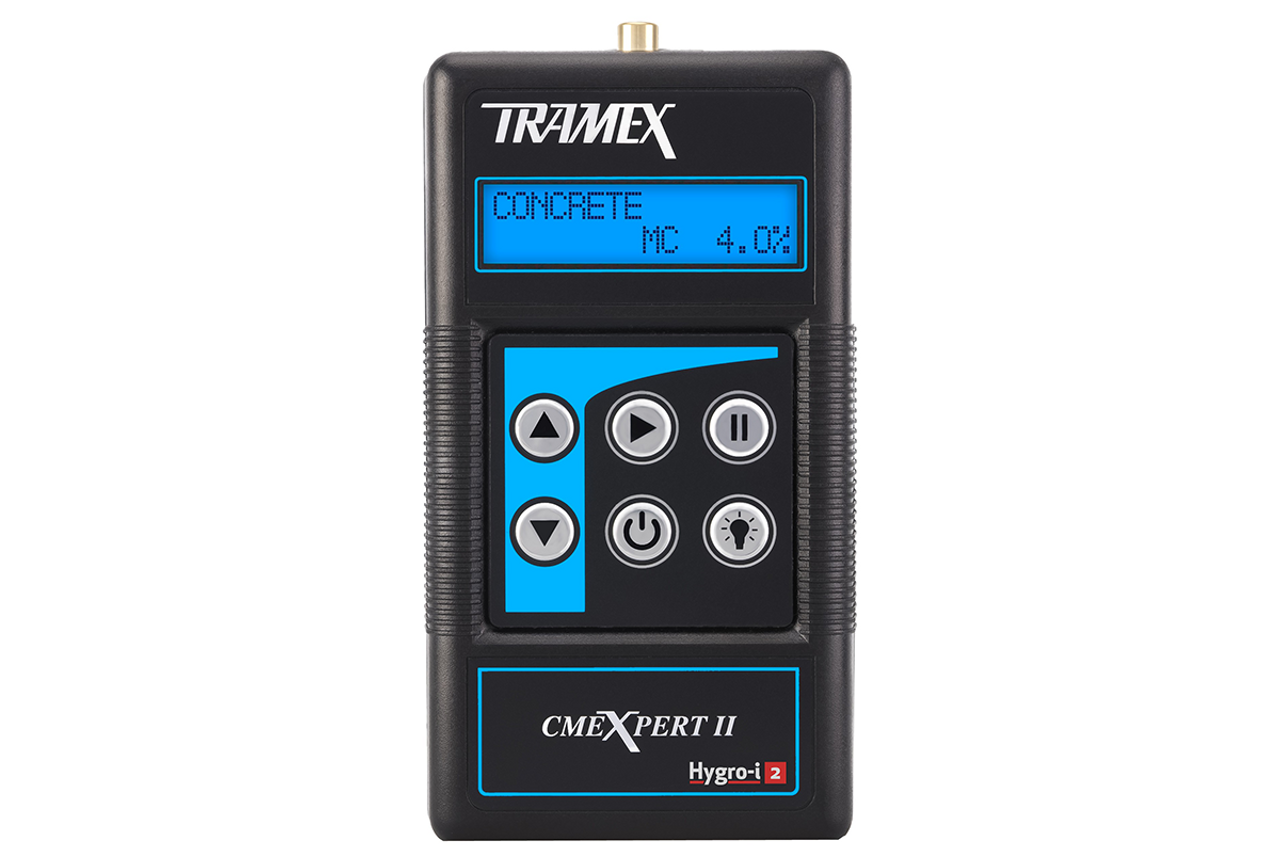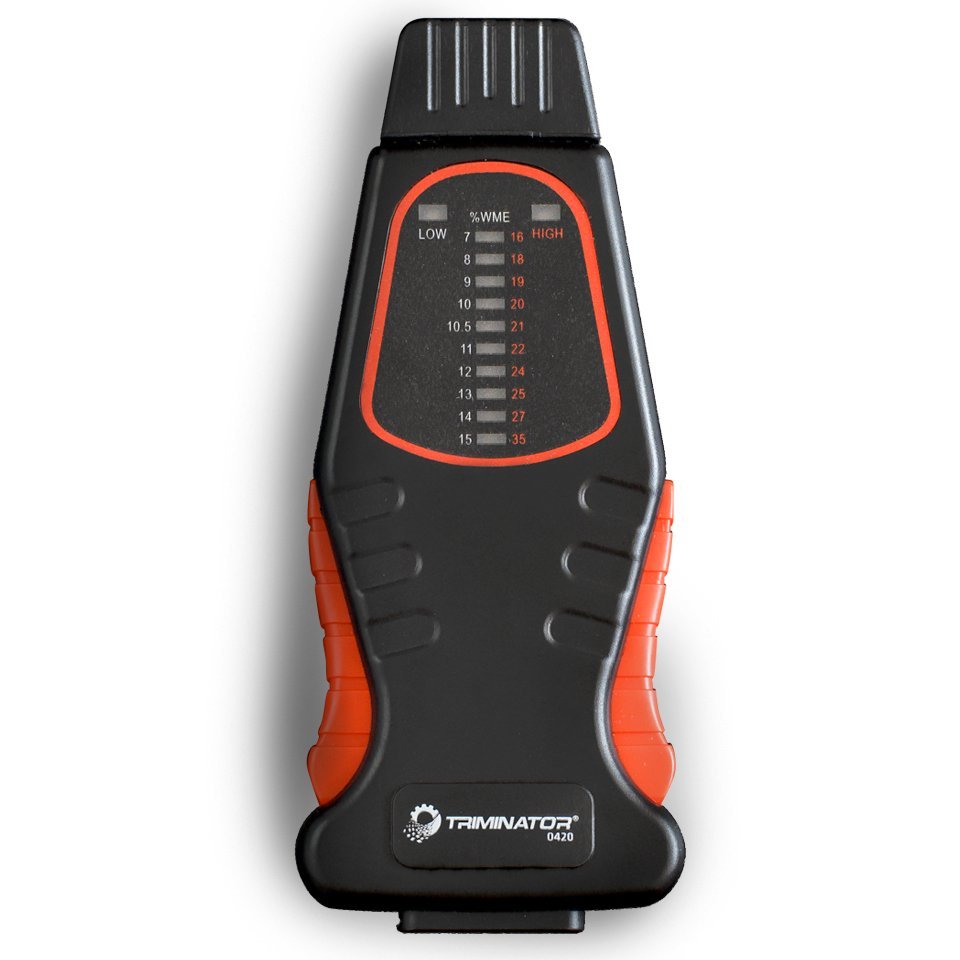The Ultimate Overview to Choosing the Right Moisture Meter for Your Needs
The Ultimate Overview to Choosing the Right Moisture Meter for Your Needs
Blog Article
The Ultimate Guide to Dampness Meters: A Comprehensive Introduction and How They Can Conserve You Cash
Dampness meters offer as important devices in spotting and keeping an eye on moisture web content in materials, helping in protecting against costly damages and guaranteeing the top quality of products. Comprehending the nuances of various kinds of dampness meters, their applications, and the possible cost-saving benefits they provide can be a game-changer for specialists and businesses alike.
Types of Wetness Meters
One usual kind is the pin-type dampness meter, which determines the electrical resistance in between 2 pins placed into a material. Pinless moisture meters, on the various other hand, usage electromagnetic sensing unit plates to check a larger area without causing damages to the product's surface area.

Infrared wetness meters gauge the thermal buildings of a product to determine its wetness web content non-invasively, making them valuable for applications where pin or pinless meters may not be appropriate. Understanding the various kinds of moisture meters offered can assist sectors pick the most proper device for their specific dampness dimension needs.

Benefits of Utilizing Moisture Meters
Wetness meters provide important advantages in precisely monitoring and analyzing moisture levels in varied products and atmospheres. One of the primary advantages of utilizing dampness meters is the avoidance of potential damage triggered by excess moisture.
In addition, using moisture meters can lead to raised energy effectiveness. In farming settings, wetness meters play a critical function in maximizing plant yields by making it possible for farmers to monitor soil dampness degrees and make educated irrigation decisions.
Exactly How to Pick the Right Moisture Meter
Choosing the proper dampness meter entails thinking about crucial variables such as material compatibility, measurement variety, and calibration accuracy. When choosing a dampness meter, it's vital to guarantee that the meter is appropriate for the certain product you will certainly be screening. Various materials have varying electric residential properties that can affect moisture analyses, so choosing a meter designed for your material is vital for exact outcomes. In addition, take into consideration the dimension range of the moisture meter. Ensure that the meter can spot moisture levels within the range needed for your applications. Calibration precision is an additional essential factor to remember. Decide for a moisture meter with trustworthy calibration to make sure exact and regular analyses. Some meters may call for regular calibration adjustments, so recognizing the calibration procedure is very important. By very carefully reviewing these factors, you can select a wetness meter that meets your needs and provides exact wetness measurements for your projects.
Appropriate Strategies for Wetness Meter Usage

Cost Savings Through Dampness Meter Applications
Just how can the critical application of dampness meters result in substantial price savings throughout numerous markets? Dampness meters play an essential function in price financial savings by avoiding possible damages and guaranteeing quality assurance in various fields. In the farming industry, wetness meters anonymous aid in establishing the ideal time for collecting crops, protecting against excess or over-drying moisture that can affect the final item's quality. This accurate monitoring aids farmers stay clear of unnecessary losses and maximize their return.
In a similar way, in construction, dampness meters assist stop pricey damages by finding moisture levels in structure products, such as wood or concrete, which can bring about architectural problems otherwise dealt with promptly. By identifying trouble locations beforehand, specialists can take corrective measures to stay clear of considerable repair services or replacements, ultimately conserving time and money.
Moreover, in the food handling sector, wetness meters are necessary for keeping track of item high quality and ensuring conformity with safety and security policies. By properly determining dampness material in food, suppliers can stop putridity, maintain freshness, and decrease waste, causing considerable expense savings. In general, the calculated application of moisture meters is a beneficial financial investment that can bring about considerable price reductions and boosted performance across different sectors.
Verdict
To conclude, wetness meters are useful tools for determining and spotting moisture degrees in numerous products. By using the ideal dampness meter and following proper techniques, customers can successfully stop expensive damages check my reference triggered by excess moisture. Investing in a top quality dampness meter can result in significant cost savings in the lengthy run by identifying possible problems at an early stage and making it possible for prompt removal. Inevitably, wetness meters are vital tools for maintaining the honesty and longevity of frameworks and products.
Dampness meters serve as indispensable tools in identifying and keeping an eye on moisture material in products, assisting in avoiding expensive problems and guaranteeing the quality of products. Infrared dampness meters gauge the thermal residential properties of a product to identify its moisture web content non-invasively, making them useful for applications where pin or pinless meters might not be ideal.Wetness meters supply indispensable advantages in properly monitoring and evaluating moisture degrees in diverse materials and settings. In farming settings, wetness meters play a crucial duty in maximizing crop yields by enabling farmers to monitor soil dampness degrees and make informed irrigation decisions.In final thought, moisture meters are beneficial devices for detecting and measuring moisture degrees in numerous products.
Report this page